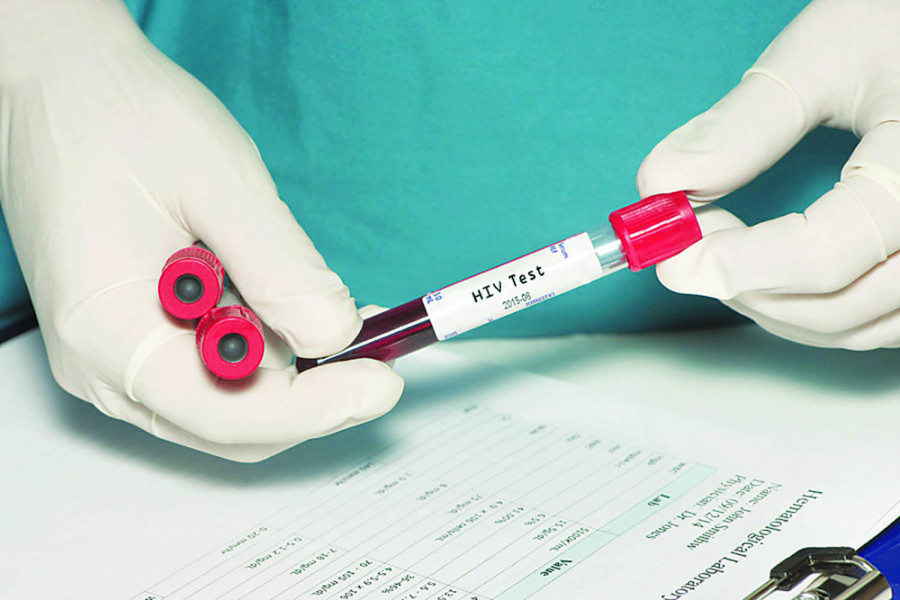Health
Societal stigma fuelling HIV drug discontinuation: Docs
Health ministry doesn’t know the whereabouts of hundreds of infected people, who discontinued antiretroviral drugs for months.
Arjun Poudel
A few months ago, the wife of a 36-year-old man from Pokhara consumed half a bottle of antiretroviral medicines at once upon learning that her husband was HIV positive and kept her in the dark about his disease for a long time.
Her husband, who had brought the medicine from the antiretroviral treatment centre, used to tell her that it was medicine for his vascular problems.
“But when she learnt that her husband was HIV positive, she gulped the entire bottle of the medicine at once,” said Sushil Khatri, president of Sparsha Nepal, an NGO working in HIV/AIDS, tuberculosis, and hepatitis, among other conditions. “As the woman was in Kathmandu and was rushed to hospital on time, she was saved.”
This was a common refrain of stigma among many people living with HIV, who have been either concealing their disease status due to fear of stigma or have been already stigmatised by the family and society.
Doctors attending to people living with HIV/AIDS said that the deep-rooted stigma against the disease is the main reason for concealing the disease condition, avoiding testing and treatment for a long time, or discontinuing medication, according to experts.
“People cannot tell their spouse(s) about their disease conditions, and it will also be difficult for the spouse to readily accept that their partner is infected with HIV,” said Dr Santosananda Jha, who has been serving at the Sukraraj Tropical and Infectious Disease Hospital in Kathmandu. “Due to this reason, many people conceal their disease condition, pass the disease to their partners and seek treatment only after they suffer from other diseases and their health deteriorates.”
In the aforementioned case, it took several weeks for the woman to recover completely. The woman, who felt deceived by her husband, tested HIV negative.
Multiple doctors who attend to the people living with HIV told the Post that it is not easy to secure school admission for children by revealing their HIV status, which shows how deeply entrenched is the stigma against the disease.
“Stigma against HIV-infected people has been deep-seated in communities, which will not end easily,” said Dr Anup Bastola, an infectious disease expert. “Compared to the past, people are now more aware of the disease and seek testing, but people are still hesitant to reveal their HIV status due to prevailing conditions in society.”
The National Centre for AIDS and STD Control said it doesn't know the whereabouts of 469 people infected with HIV. Those people stopped contacting officials at the antiretroviral treatment centres for over 90 days. Officials said they are not sure whether those infected people have been taking the HIV medication.
“If the infected people discontinue the drugs, resistance develops meaning that the same drug doesn't work on them again,” Lok Raj Pandey, information officer at the Centre. “It is difficult to cure patients who seek treatment in the final stages and a multi-drug therapy treatment would be needed if patients discontinue their treatment.”
The Health Ministry provides antiretroviral therapy treatment free of charge to all people living with HIV (PLHIV). As of July 2023, there are 85 operational ART sites and 46 ART Dispensing Centers in 76 of Nepal’s 77 districts.
It is estimated that there are 30,000 HIV patients in Nepal and of them 24, 237 have been taking antiretroviral treatment.
There are currently 74 antiretroviral therapy centres in operation across the country.




 13.12°C Kathmandu
13.12°C Kathmandu















